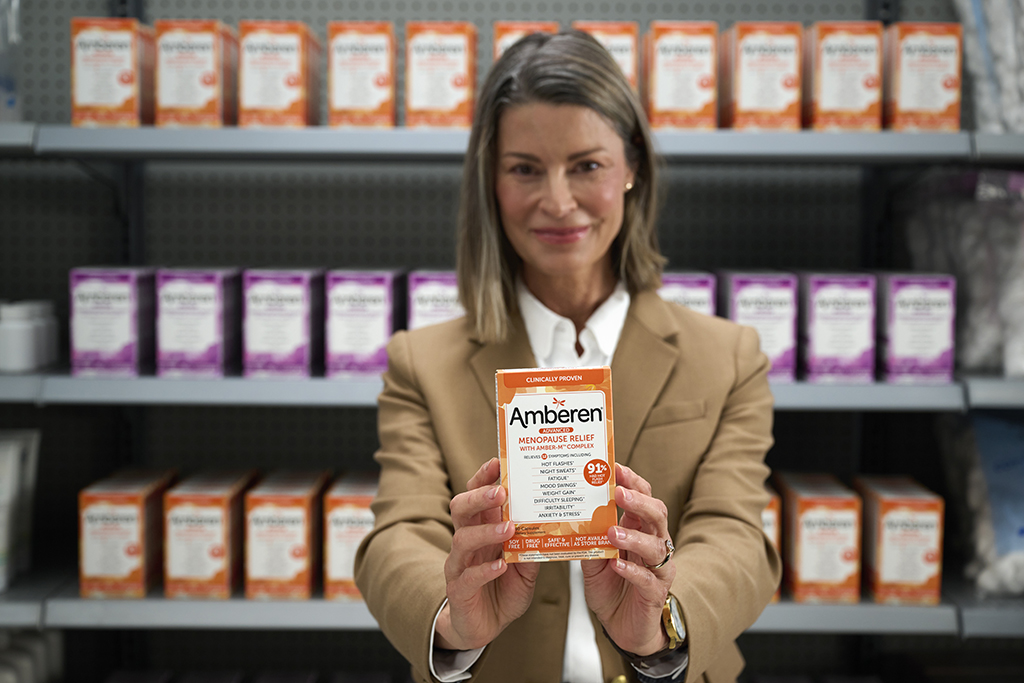Asked about The Other Talk, an Amberen brand campaign designed to foster conversations about menopause, senior brand manager Leslie Dimino said that it reflects a cultural shift that has taken place over the last few years.
Pointing to celebrities who have been vocal about menopause and perimenopause – Naomi Watts, Drew Barrymore and Kelly Ripa, among others, Dimino noted that “the m-word is everywhere now, so it’s a lot more fun and not as hard to be in this category. We’re not having to be like, ‘Um, there’s menopause and, oh by the way, we’re the greatest supplement for it.’”
According to Amberen research, around 70% of women still feel uncomfortable discussing menopause, even with their own healthcare providers. This reluctance sits at the heart of The Other Talk, created alongside marketing agency Ruckus.
The effort includes a 30-second spot as well as 15-second and six-second ones. They touch upon different “life talks,” from the birds and the bees to simple ones at the end of a long day, before encouraging women to talk about menopause.
“We got all of the Ruckus women on an internal brainstorming call and we realized that we talk about all these things that were embarrassing in our lives: heartbreak, our first breakup, our first crush, our periods,” said Ruckus senior account manager Julie Smith. “We talk about going through marriages and divorces, but we really don’t talk about menopause. The campaign was born right there.”

Amberen has been on the market since 2007. What distinguishes The Other Talk from previous marketing efforts, Dimino believes, is a shift from science to emotion.
“A lot of what we have focused on has been based on symptom severity,” she recalled. “If you know that you’re having these symptoms and you want something that’s going to work, then we’re going to give you the information you need.”
The current effort, on the other hand, is about talking to potential consumers “more broadly…This is our first campaign that has an emotional angle.”
Smith touts the “Norman Rockwell look” of the spots as a key contributor to their emotional appeal.
”We were looking at the wider, more picturesque framing and what we wanted to do was capture scenes of important talks,” she explained. “That led to some wider shots with bright lighting. We wanted to give it a look like, ‘You are peering into a scene rather than living within it, so you’re on the outside looking in.’”
Dimino hopes that The Other Talk will lead to a reframing of how people think about and discuss menopause. Rather than characterizing it as the end of one phase of life, she believes menopause should be viewed as the beginning of a new one.
“We want to have ‘the other talk’ with women, but then we want them to have the other talk with other people, whether they’re in menopause or have already gone through it,” she added. “We want them to help their friends who aren’t talking about it either.”







